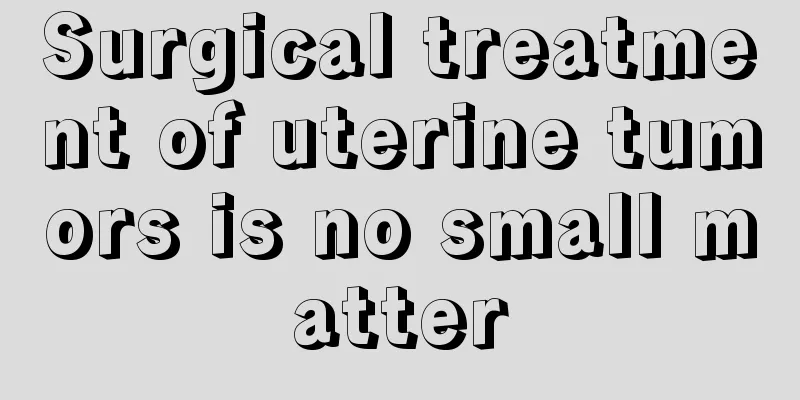How much cervical cancer vaccine should I get at the age of 35

|
Women aged 35 can choose to receive the 2-valent or 4-valent cervical cancer vaccine. Both vaccines can effectively prevent HPV infection and protect women's health. 1. Scope of application and effect of bivalent vaccine The 2-valent cervical cancer vaccine is suitable for women aged 9 to 45. This vaccine mainly targets HPV types 16 and 18, which are the main causes of cervical cancer. By taking the 2-valent vaccine, you can effectively prevent infection with these high-risk HPV types, thereby reducing the risk of cervical cancer. 2. Scope of application and effectiveness of the quadrivalent vaccine The 4-valent cervical cancer vaccine is suitable for women aged 20 to 45. In addition to preventing HPV types 16 and 18, the 4-valent vaccine can also prevent HPV types 6 and 11, which do not cause cervical cancer but can cause genital warts. Vaccination with the 4-valent vaccine can provide more comprehensive protection, not only preventing cervical cancer, but also reducing the occurrence of genital warts. 3. Necessary examinations before vaccination Before getting the cervical cancer vaccine, it is recommended to go to the hospital for a cervical liquid-based cytology test and HPV virus test. These tests can help confirm whether you have been infected with HPV or have cervical cancer. If the test results show no infection or disease, then you can consider getting the vaccine. Doing so will not only ensure the effectiveness of the vaccine, but also avoid unnecessary side effects. 4. Precautions during vaccination When receiving the cervical cancer vaccine, you need to follow the doctor's instructions. Vaccination has certain indications and contraindications. If you have any health problems or contraindications, you must inform them in advance to avoid blind vaccination and side effects. Generally speaking, the cervical cancer vaccine requires three injections, and the entire vaccination process takes about half a year. 5. Things to note during the vaccination period It is recommended to avoid pregnancy during the vaccination period. Because the body needs time to produce enough antibodies during the vaccination process, pregnancy is not recommended during this period. In order to avoid accidental pregnancy, contraceptive measures can be taken during sexual intercourse. Before the antibodies are fully produced, it is also necessary to keep the sex life clean to avoid the risk of infection caused by unclean sex. 6. The significance of vaccination Getting vaccinated against cervical cancer is not only a way to protect your own health, but also a responsibility to your family and society. Vaccination can significantly reduce the incidence of cervical cancer and improve the quality of life. Especially for women over 35 years old, vaccination is a wise choice, which can add an insurance for future health. Women aged 35 can choose to receive the 2-valent or 4-valent cervical cancer vaccine. Conduct necessary examinations before vaccination, follow the doctor's instructions, and pay attention to details of life during vaccination, so as to better prevent HPV infection and protect your health. |
<<: Early symptoms of nasopharyngeal carcinoma
>>: Does breast cancer cause back pain?
Recommend
Bladder cancer diagnosis test items
Bladder cancer is a common malignant tumor of the...
What is the reason why adults have a high fever that won't go away
A high fever that does not go away is a relativel...
What are the disadvantages of red grapes?
In daily life, there are many varieties of grapes...
How long can you live after liver cancer interventional surgery? Actively cooperate with treatment, generally five years
Liver cancer can be treated through surgery. Some...
How can nails grow faster
We all have nails, but the growth rate of nails i...
The principle of hand warmers, types of hand warmers and their advantages
Hand warmers are a kind of heating product. In da...
What are the recipes for treating gray hair
I started to have white hair when I was a teenage...
Will liver cyst develop into liver cancer?
Male, 39 years old, was not in good health some t...
What can honey soak to be good for the stomach
There are many reasons for poor gastrointestinal ...
Two things to note before surgery for elderly patients with intestinal cancer
With the aging of the Chinese population, the inc...
There are many large scalp patches on the head
It is normal to have dandruff on the scalp. This ...
The symptoms of tongue cancer are very similar to ulcers. How can we distinguish whether it is tongue cancer?
Tongue cancer is a common malignant tumor in the ...
What are the ways to exercise for thyroid cancer
What are some ways to exercise for thyroid cancer...
What is the reason for the peeling and itching of feet
Peeling feet is a very common disease in people&#...
What are the home care for advanced liver cancer? I will teach you four steps to prevent liver cancer
We often see or hear that many people have liver ...









